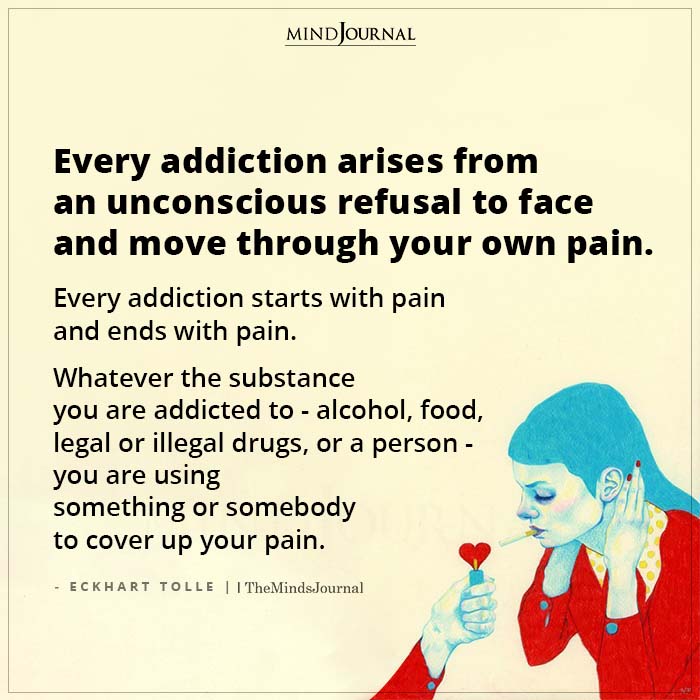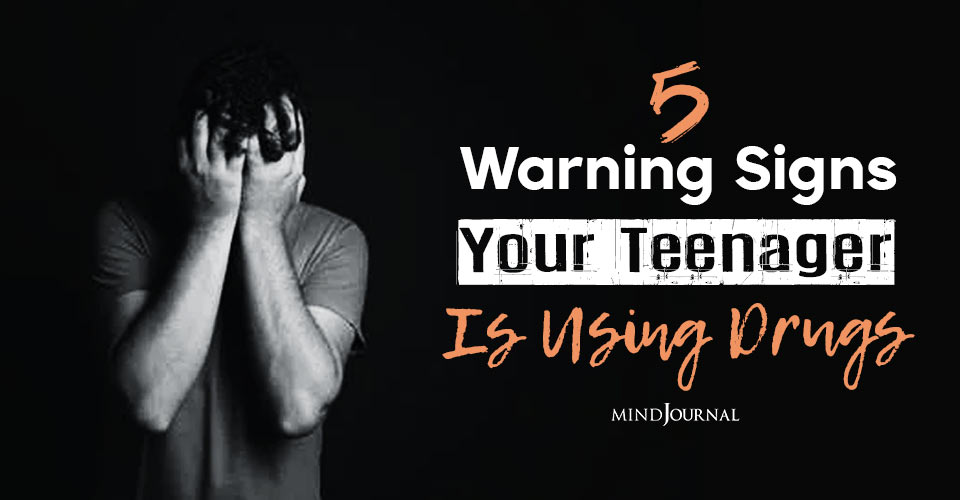Figuring out whether or not your teenager is using drugs can be a challenge. I sat down with Holly Holloway from MedMark Treatment Centers to discuss what concerned parents can do. Holly works to help spread awareness and end the stigma of addiction. Here’s what she had to say:
Young adults deal with many physical and emotional changes throughout their teen years, making it difficult to pinpoint whether their symptoms are drug-related, or simply puberty.
With the rising awareness of mental health in teens, it’s also something to take into consideration when approaching the subject. However, there are specific signs to look out for if you think your teen is experimenting with drugs and precautions to take if you are concerned for their well-being.
Related: 4 Harmful Impacts Of Substance Abuse On Adolescent Mental Health
How To Tell If Your Teenager Is Using Drugs: 5 Major Signs
1. Behavioral Changes
If your teen has recently begun acting differently to the point where it’s affecting previously stable relationships with family members, it could be a sign of substance misuse.
Arguing with siblings and exhibitions of extreme moodiness and lashing out in anger can be related to being under the influence.
Staying out past curfew and blatantly defying ground rules are classic teenage behaviors, but if your teen is using drugs, these behaviors may also coincide with staying out all night, driving recklessly, constantly asking for money, and disappearing for long periods of time.
There can also be more physical signs that include incessant sniffling, eye redness, manic behavior, drastic appetite changes, very fast or slow speech, and poor coordination.
Depending on the substance they are using, their behaviors will vary. It’s important to stay in tune with your child as they approach teen ages that are most prone to experimentation.

2. Emotional Changes Due to Drugs
Teens are notorious for having mood swings and shifts in emotional stability. When coupled with drug use, the common peaks and valleys of adolescence can be magnified.
A teen who is acting withdrawn and depressed may be dealing with mental health issues, and it’s important to also look for deceitfulness or secretive behavior as well. Those are both signs they may be involved in drug-related activities.
Sudden excitability or restless behavior can also be signs of being under the influence. Drugs can counteract normal hormonal development in teens especially. Hormones can greatly affect a child’s behavior as well as their growth and development.
While it’s hard to gauge the reasoning behind a teenager’s behavior sometimes, it’s still important to observe their moods and personality shifts if other signs of possible drug use are present.
Related: 3 Powerful Pointers That Will Help In Preventing Substance Abuse
3. Health and Hygiene Changes Due to Drugs
Young adults are in the process of figuring out how life works as their bodies are undergoing changes. While the process of rapid growth and changing hormones can take its toll on a teenager, there are specific signs that could be related to drug use.
Other than obvious track marks on arms from injecting drugs, frequent contusions and abrasions could also indicate injuries sustained while intoxicated.
Frequent lethargy, headaches, and periods of very little sleep followed by several days of non-stop slumber are very common in young adults who are misusing drugs, including prescription medication.
If your child has drastically changed how much they mind their appearance, their focus may be shifted towards other things. A messy exterior and lack of regard towards their personal hygiene could also be signs of degrading mental health coupled with drug use.
4. Changes at Home and School
If you’ve noticed a drastic decline in your teen’s grades and an increase in them skipping school, there could be drug use involved. If a teacher has reached out about behavior in the classroom or reports of possible intoxication during school hours, those are red flags not to be ignored.
Be on the lookout for concealed drug paraphernalia around the house or car including cellophane wrappers, aluminum foil, rolling papers, small pipes, and small baggies or containers.
Often times if teens aren’t able to obtain jobs, they will steal items from their home to sell for money, including prescription medication. It’s important to check and make sure any alcohol cabinets and refrigerators are monitored as alcoholic beverages can also be used as currency for underage teens.
5. Other Risk Factors
Teenage behavior can be unpredictable and vague but there are external factors that can influence them negatively and drive them toward drug use. (See Teen Prescription Drug Use Skyrockets, Parents Clueless)
- Family History: If there is a genetic trend of addiction on either side of a child’s family, they are more susceptible to following down that path. This can include issues with alcohol, nicotine addiction, prescription drugs, or illicit substances. Studies have shown that first-degree relatives of those with addiction issues are eight times more likely to develop addiction disease.
- Surroundings: Areas that have a high rate of drug and alcohol use can be a harmful environment for growing young adults. Living in an atmosphere where drugs are used recreationally can normalize exposure to certain substances. In homes where parents and siblings frequently misuse drugs and alcohol, children are prone to a higher rate of experimentation that can lead to addiction.
- Age: Teenagers are bound to experiment as their growing brains become curious about the world that surrounds them. However, the earlier a teen is exposed to drugs and alcohol, the higher the risk of addiction. Because the human brain does not finish primary development until one’s mid-twenties, the damage that drug use can cause can be irreversible.
Being a teenager has never been easy, but there are ways for parents to create healthy relationships with their children in order to help guide them toward good decision-making.
Related: Loving Someone With Drug Addiction: What Can You Do To Help?
Being genuinely interested in your child’s life is a great way to be proactive and engaged. Asking simple questions about their school life, as well as their social life, is a great opportunity to gather information in order to know what they are up to from day to day.
While shifts in social circles, activities, and interests are to be expected, keeping up with them is a supportive and non-intrusive way to know what is going on. Keeping a teen’s home life and surroundings safe, clean, and comfortable is also a crucial factor in guiding them to stay on the right track.
Most importantly, creating discussion about aspects of their teen life and relating to their problems is far more productive than interrogation and accusation. If your child feels that they can trust you and come to you with fears, thoughts, and troubles, it will create open communication.
This will help them feel safe and more stable, thus less likely to turn to drugs to help them deal with their emotions. (See “Healing Emotional Pain: When Someone You Love is Addicted”)
Want to know more about the signs that a teenager is using drugs? Check this video out below!
Written By Sean Grover, LCSW Originally Appeared On Sean Grover











Leave a Reply